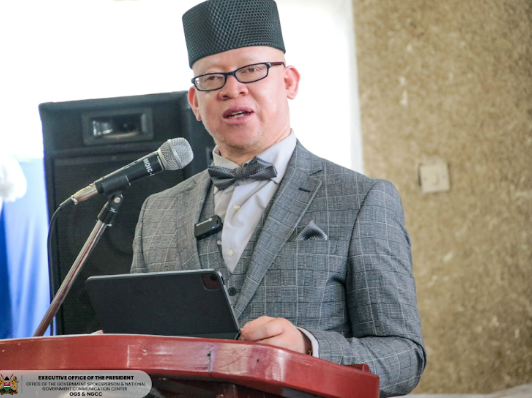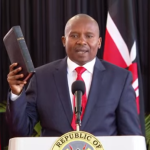The government has extended the deadline for university funding applications to August 15, 2024, from the original deadline of July 31, 2024. Addressing the press on Wednesday, government spokesperson Isaac Mwaura announced that as of August 4, 2024, only 79,038 out of 153,275 students placed by KUCCPS had applied for funding.
Mwaura emphasized that students can apply for scholarships and loans without needing an identity card. “This temporary measure ensures that no student is disadvantaged or delayed in pursuing higher education due to administrative processes,” he stated.
Applicants under 18 years old can use their KCSE index number and a copy of their birth certificate instead of a national ID card. Those aged 18 and above who have not yet received a national ID can use their KCSE index number and attach their waiting card as proof of pending ID applications.
In its commitment to improving education standards, the government has allocated Sh36.31 billion to the Higher Education Loans Board in the recently approved supplementary budget.
Additionally, Sh17.9 billion has been allocated for recruiting 20,000 Junior Secondary School teacher interns and converting current interns to permanent and pensionable status, along with Sh3 billion for the school feeding program.
Mwaura explained that the new funding model aimed to cover 80 percent of university costs for admitted students through loans and scholarships. However, this approach proved unsustainable, leading to payment difficulties and reduced lecturer attendance.
The commitment to cover 80 percent of costs ended up covering only 50 percent, or even 45 percent in some cases, resulting in a significant funding gap and compromised educational quality. Consequently, universities inherited a debt of Sh60 billion, pushing them to the brink of a crisis.
In contrast, Mwaura explained that the new funding model uses a means testing instrument to fairly assess student needs, categorizing them into five funding bands.
He noted that the adjustment to the new model was validated by the fact that 20 percent of students did not apply for scholarships in 2023 because they could afford the total fees, unlike in the past when they were automatically considered for sponsorship.
The savings from this adjustment have benefitted students in tertiary institutions, primarily in Technical, Vocational, Education, and Training (TVETS).
Mwaura acknowledged concerns from some Kenyans about the affordability of the fees assigned to households and reassured that no child will drop out of school or college because of fees. “Beginning August 19, universities will inform students of the exact payable fees based on their household financial ability as determined through the means testing instruments,” he stated.
It is anticipated that the timely settlement of invoices and contractual obligations under the new model will improve institutions’ cash flows and enable them to focus on their core academic and research activities, thus enhancing the quality of education.



